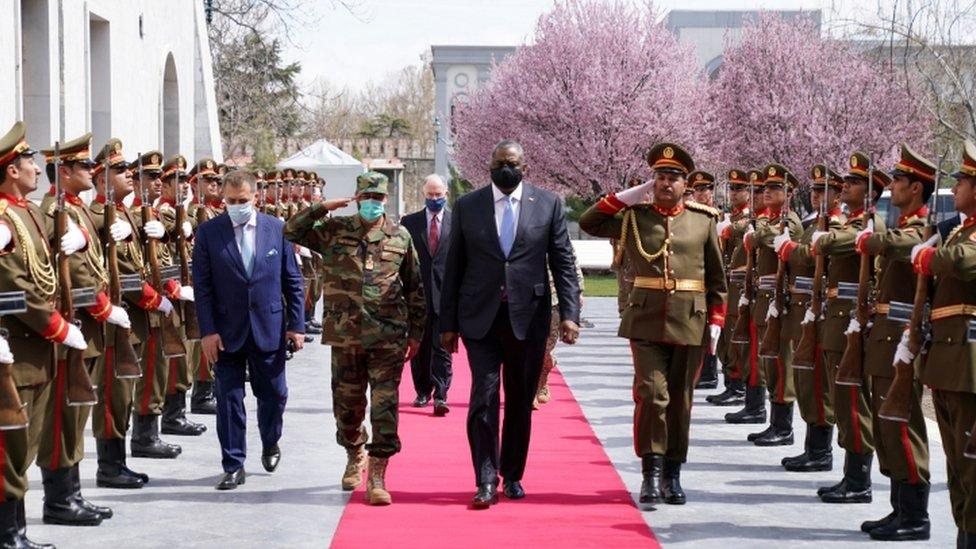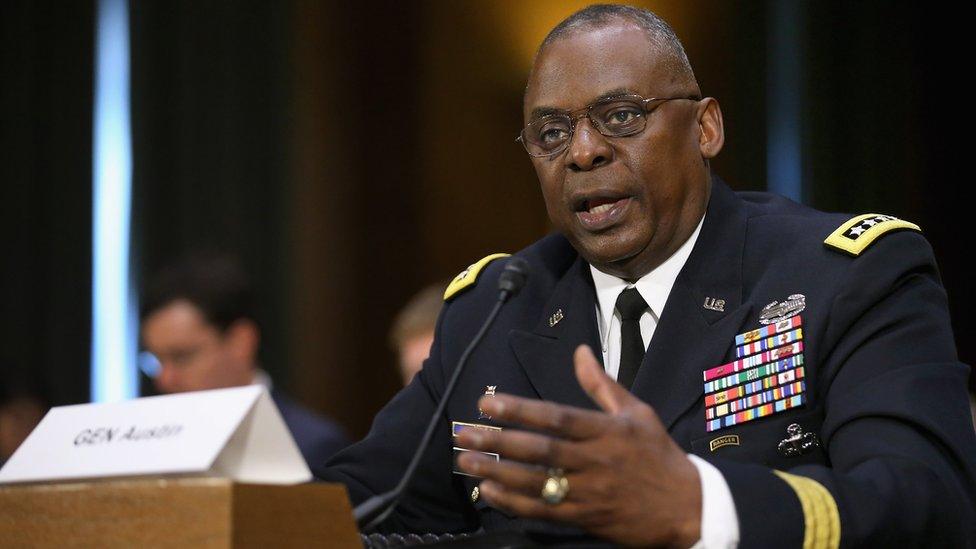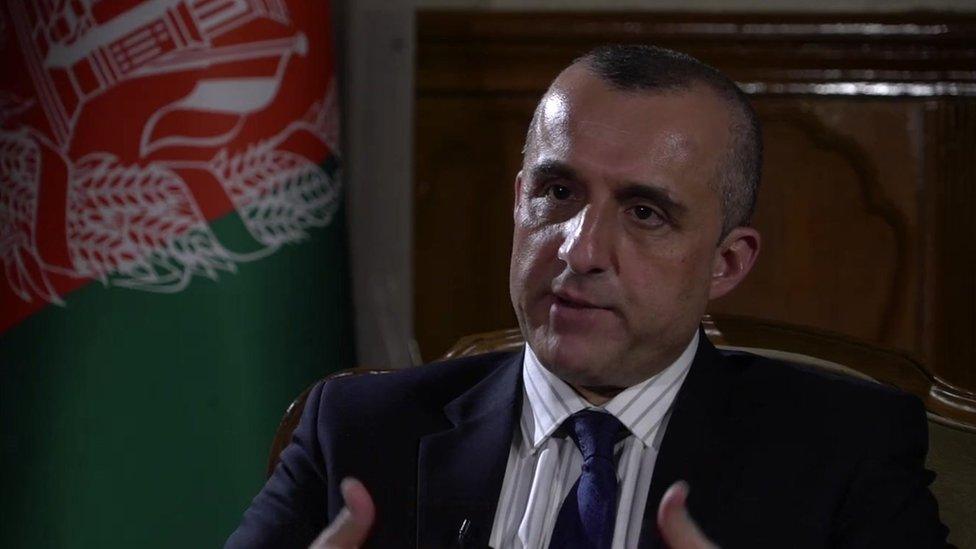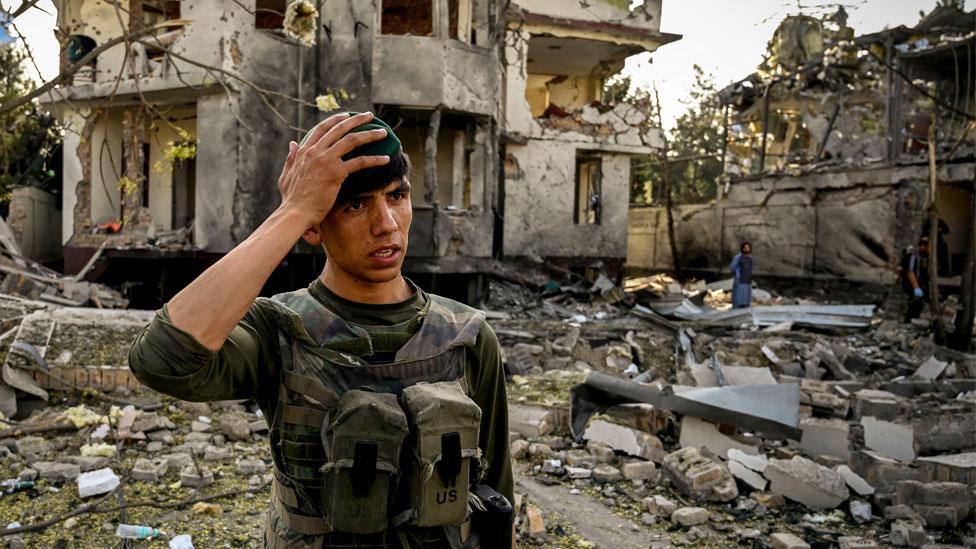Afghanistan: US Defence Secretary Lloyd Austin on unannounced Kabul visit
- Published

Lloyd Austin is the first member of President Joe Biden's cabinet to visit Afghanistan
US Defence Secretary Lloyd Austin has made an unannounced visit to Afghanistan, weeks before a planned withdrawal of all remaining US troops.
After meeting President Ashraf Ghani in Kabul, he called for a responsible end to the war but would not say whether the deadline would be met.
Mr Austin said the focus should be on reducing high levels of violence to allow a negotiated end to the conflict.
The pullout was agreed with the Taliban by the Trump administration last year.
But there are questions over whether the insurgents have kept their pledge to negotiate with the Afghan government.
New US President Joe Biden has said the 1 May deadline would be tough to meet, prompting warnings of "consequences" from the Taliban.
Mr Austin is the first member of Mr Biden's cabinet to visit Afghanistan. He flew into Kabul on Sunday at the end of a brief tour of Asia.
Speaking to journalists, Mr Austin would not say whether the Taliban had met their obligations under the recent deal.
"It's obvious that the level of violence remains pretty high in the country," he said, quoted by the New York Times.
"We'd really like to see that violence come down, and I think if it does come down it can begin to set the conditions for some really fruitful diplomatic work."
From 2019: Is peace with the Taliban possible?
There are fears that if foreign militaries withdraw before a lasting agreement is reached, the Taliban might return to power.
The US says it has some 2,500 troops still in Afghanistan.
What was the US-Taliban deal?
The Trump administration made withdrawing troops from Afghanistan a priority.
The deal signed in February 2020 said that the US and its Nato allies would withdraw all troops in 14 months if the Taliban upheld its promises, including not allowing al-Qaeda or other militants to operate in areas it controlled, and proceeding with national peace talks.
Although the Taliban, a hard-line Islamist movement, stopped attacks on international forces as part of the historic agreement, it has continued to fight the Afghan government.
As a condition of starting negotiations with the Afghan government, the Taliban also demanded that thousands of their men be released in a prisoner swap.
Direct talks then began Doha in September 2020, but a breakthrough has still not been reached.
- Published8 December 2020

- Published9 March 2021

- Published15 January 2021

- Published30 August 2021
